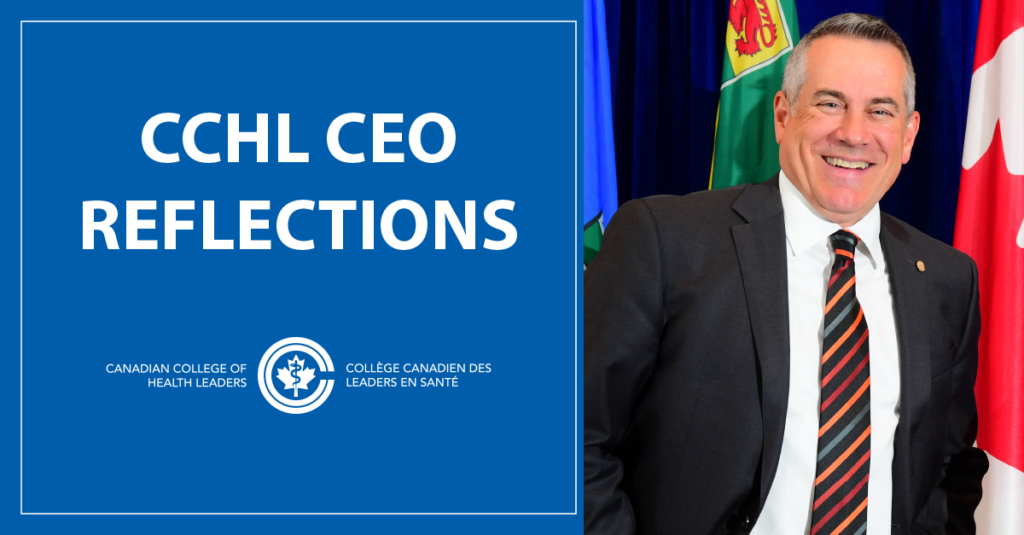This year’s Ontario Health Leaders Summit, held on April 5th, provided an opportunity for the six CCHL Ontario chapters to co-host and co-create a meaningful gathering and provide an opportunity for support and exchange among our members in Ontario and across the country. The theme this year was “The way now! Renewed leadership for integrated care”.
We opened the summit with Kris Ann Piazza from Huron Advisors who very quickly focused on the notion of removing barriers for renewal as the pathway to integrated care and better communities. She suggested that making sure we value people and show them our appreciation can be the fastest way to overcome the barriers we currently face. This was summarized in a mere 11 words: hear me, protect me, prepare me, support me, care for me. In addition, the action plan she shared with the audience included four distinct steps: be present, know your workforce, use the power of positive thinking (our new word for the day was heliotropism), and make sure you use all available resources for those in need.
Our panelists Susan Bisaillon and Dr. Bernard Leduc brought their real-life experience to the discussion and amplified Kris Ann’s message. On the one hand they felt that in the face of a clear and present danger such as the pandemic, many shining examples of collaboration arose. On the other hand, they observed a surprising lack of understanding of infection control practices in the community. At the end of the day, they felt that we saw better synchronization between parts of the continuum and greater understanding of other silos. There was a general feeling that we need to build greater collective capacity for integration and innovation by having a better systems view (the S in the LEADS model!). Indeed, they thought this was one of the silver linings of the pandemic.
If our keynote presentation and panel discussion focused on system transformation as the pathway to integrated care, our chapter-hosted breakouts focused on building coalitions at the community level to generate innovative and effective new pathways to integrated care (the D in the LEADS model).
The Greater Toronto Area Chapter and Northwestern Ontario Chapter’s session included two case studies focused on developing coalitions for underserved populations in areas where patients face many barriers to care. The case from the Greater Toronto Area had 700 partners in the coalition to improve access to care (yes 700!).
The Eastern Ontario and the Southwestern Ontario chapters’ session explored integrated care for equity seeking populations. The session provided concrete examples of integrated care approaches to support people in their local communities and the importance of building intersectoral coalitions. The 1 call/1 click youth mental health program in Eastern Ontario involved 60 partners and 1000 physicians. Talk about a powerful coalition!
The Hamilton and Area Chapter and the Neon Lights Chapter presented examples of successful integrated care pathways and the broader impacts of the patients, with a focus on equity. The Hamilton COPD (Chronic Obstructive Pulmonary Disease) integrated care pathway engaged 9 hospitals and is now being scaled to other conditions and diseases. A central part of the model was “ONE”. One team, one record, one fund and one call/click to access.
On reflection, I have two basic takeaways to propose. The first is that if we clearly commit to making people feel valued and appreciated, when faced with a common critical problem, mountains can be moved, and great things can be achieved. The second is about opportunities for integration. In the various case studies presented by our chapters, we heard about impressive levels of collaboration both in terms of numbers of collaborators and the overall impact. This begs the question however, if there are dozens if not hundreds of health care organizations who build coalitions in the face of crisis, are there untapped opportunities for integration and building scale going forward at the municipal and at the regional level?
A virtual Summit like this would not be possible without the strong support of our sponsor. Thank you to Huron Advisors Canada Limited, our keynote sponsor, for their generous contribution and commitment to this summit.



